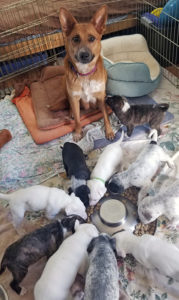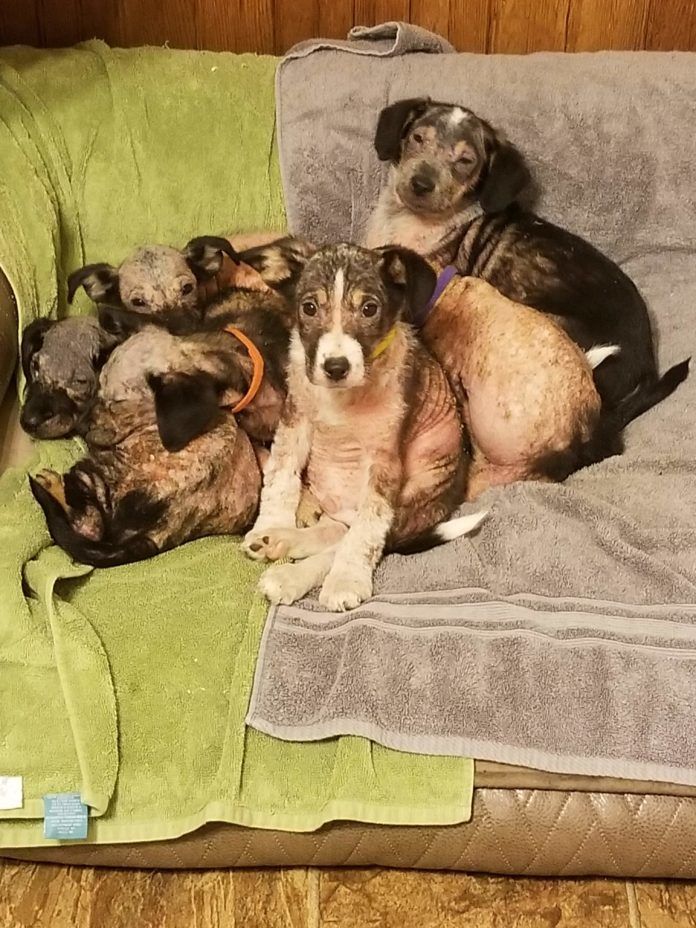Anyone who has ever volunteered in animal rescue can relate: You vow to take a break. Maybe your circumstances have changed in a way that makes it more difficult for you to foster or spend time at the shelter; maybe you are just burned out.
But it’s been months and months since you’ve helped transport an adopted pup to a distant new home or driven hours to transport a dog away from a shelter that had given him all the time they could afford and toward a rescue group that would give him all the time he needed to find a new owner. You can’t remember the last time you brought a donation of canned food or cases of paper towels to the shelter. But eventually, something draws you back in.
Years ago, I volunteered to be my local shelter’s volunteer coordinator in an effort to try to find more people who would commit to coming to the shelter to wash dogs and help them get outside to soak up some sunshine and attention. I recruited a few good folks over the course of a few years, but eventually gave up that role in favor of fostering needy adolescent dogs and large litters of puppies. I found it disheartening to spend lots of time showing people around the shelter, trying to find something that they would like to do (and were capable of doing), only to have them disappear after just a few volunteer sessions.
Helping the dogs directly was far more rewarding for me—even when that was just helping the shelter staff do laundry, picking up poop in the outdoor runs, or washing dog bowls. Oh, and I write and produce the shelter’s newsletter, which is one of its major fundraising tools.
Volunteer Burnout
A deep dive into helping animals in my community following the devastating Camp Fire in November 2018, pardon the expression, really did burn me out. I did as much volunteering in the emergency animal shelter as I could, and, with the fire still burning, took on the fostering of a litter of sick, starving, mange-covered puppies who were brought into my own city’s shelter; otherwise, given the effect the area-wide emergency was having on our already beleaguered shelter, they would have been euthanized. Two of the seven puppies died, which was really devastating to me. Previously, in all my fostering, I had never lost a puppy, and I’ve fostered some very sick pups.
The rest pulled through, though one developed an eye condition that— despite intense treatment and many visits to a prestigious university veterinary hospital’s ophthalmology department (and my learning to spell ophthalmology without even thinking about it)—ultimately resulted in the loss of the eye. This pup, Odin, very nearly became my third dog, when, out of nowhere, a perfect home for him materialized.
That was SEVEN full months ago.
Easing Back into Volunteering

So, I guess I was overdue. A trip to the shelter to drop off towels and blankets led to a discussion with a shelter employee about volunteers. Which led to a discussion with a friend who has been volunteering there for years about restarting a volunteer training program. Which led to a meeting with the shelter manager about her needs and wants, which led to her expressing that she had to develop more foster providers. Just that morning, she was trying to find a place for a mama dog with 10 4-week-old puppies, which led to an animal control officer arriving at my house a few hours later with the mom and pups.
I actually am not well set up (yet) for fostering puppies at my “new” house. In this case, I only facilitated the transfer of the canine family from the treatment room at the shelter to a friend’s house. This friend is all set up for containing and caring for a large litter and their mom but didn’t know I had volunteered her for duty until she got home from work that afternoon. (She had just told me, days prior, that she couldn’t wait to foster again! Little did she know, puppies were just around the corner!)
I stepped up as a short-term, intermediate foster spot so we could get the family out of the shelter before the little ones were exposed to the ubiquitous, airborne kennel cough pathogens. As it was, setting up a temporary place for them to be in my office took a few hours of rearranging things (as well as my baby chickens, who were already camped out in a dog crate in my office) and then an inordinate amount of laundry afterward!
My friend lives only a mile from me; I can go to her house daily for the next few weeks to provide a mid-day cleaning and feeding and get a little “fix” of that famous puppy breath. And I’m exchanging emails with my other friend about what we can cook up to bring some more helpers into the mix. It’s time to get back to helping.







OMGosh, timing is everything! I foster litters for our small shelter. Maybe once a year. But the last litter the puppies were different. Mom was nuts and stop nursing and the puppies were never content. They could eat mush when she finally left but the puppies seem to be born with a worry spot and if one worried they all did. I ended up with one pup for 7 months before her home came along. I’ve never been able to take them to the shelter and leave them once of age. My shelter works with me and once screened and approved adopters come to the house to pick a puppy…if they like them. Once the last puppy was gone I was done, I felt I failed them. Although I looked online I never found any info on unhappy litters of puppies. But, it has been a year and I am ready again. I feel if I got another litter like that I would do my best to find individual fosters for each pup so they may be able to get past it without sibling emotions playing a part. (open to suggestions!!!!) I’m back at the shelter taking pictures of the dogs and I have missed it so much. I love spending time with each dog. You have made me feel better about the break I took. Thank you!!
I took a break because my dog had cancer and she was who I needed to be with. Then my Husband was in a car accident. After his rehabilitation and time with my new puppy I felt a draw back to volunteer with the dogs. A few changes were made at the shelter for the better and I felt more than welcomed back. I am excited to get back into it.
So the frustration of that constant stream of new volunteers that come for a week and disappear is not new or unique to our shelter. Good and bad to know. It must be a shock for some people when they see the work it takes to care for animals in a shelter. We have made some headway 700+ active volunteers on average. I can’t imagine not volunteering. We are doing more right than wrong at this point but it helps to know that the problem is industry wide.
You are a wonderful person, Nancy, and have made a difference to so many.
I have a 11 1/2 year old standard poodle—the love of my life, and have had six before him. Dogs are my life, and I would like to know how I could volunteer. I will never work in a shelter that euthanizes. Would you please send me info how I might be able to help. I have experienced a maakir life change, and dogs are “my heart!” Please let me know if I could help! Thanks❤️🐩❤️
Nice written post. keep up the good work!
Wow this was a great story. I myself have always wanted to foster puppies/dogs but I never knew when the right time was/is.